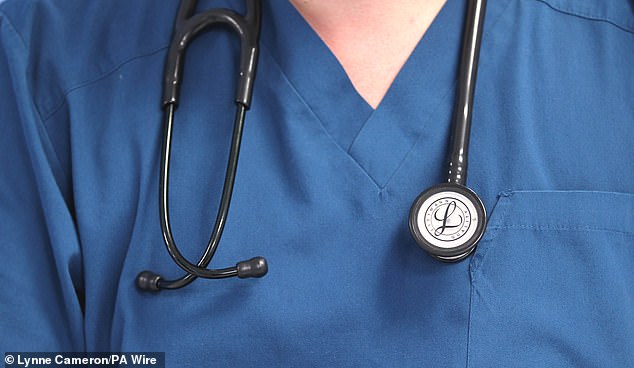Doctors are increasingly cutting their hours and refusing to do overtime in a bid to improve their work-life balance, the medical regulator has revealed.
The General Medical Council warns that the resulting staff shortages will put patients at risk unless urgent action is taken to address the trend.
Burnout and years of declining job satisfaction are to blame, and doctors have opted to “take matters into their own hands.”
The GMC’s annual report on the working experiences of doctors in the UK shows that 19 per cent reduced their hours last year, compared with 8 per cent in 2021.
In addition, around 41 percent refused to accept additional work in 2023, compared to 23 percent in 2021.
Doctors are increasingly cutting their hours and refusing to do overtime in a bid to improve their work-life balance, the General Medical Council has revealed (file image)
He says it may be better for patient safety if exhausted doctors opt out of overtime.
But he added: “If the trend continues unaddressed, the capacity of already overstretched health services could be further reduced, putting patients at risk.”
The news could come as a blow to ministers after Labour promised to increase night and weekend working to try to reduce the backlog of care in the NHS.
According to the latest data, one in three doctors (33 per cent) were found to be “in hardship”, meaning they regularly worked beyond their allocated hours and felt unable to cope with their workload.
Nearly a quarter of doctors (23 percent) will be absent from work due to stress in 2023.
The GMC expressed concern about the high proportion of doctors who say they are “struggling”, admitting this poses risks to patients and the rest of the workforce.
In 2023, 53 percent of physicians reported being satisfied with their daily work, a sharp drop from 70 percent in 2021.

The GMC’s annual report on doctors’ experiences of work in the UK shows that 19 per cent reduced their hours last year, compared with 8 per cent in 2021 (file image)
Particular concerns have been raised about those in training who “are more likely to be at high risk of burnout compared to any other group”.
They are also the group most likely to consider taking their skills abroad.
And almost half (48 percent) of GPs are said to be struggling.
Fed up, family doctors in England are already on strike over their new contracts.
Some have threatened to cut the number of appointments they offer in half.
Charlie Massey, chief executive of the GMC, said: ‘We know that when doctors are overworked and under-supported there is a risk not just to doctors themselves but also to patient care.
‘These data show that more physicians are now taking matters into their own hands, not only to protect their own health and well-being, but also that of their patients.’

According to GMC findings, almost half (48 per cent) of GPs are struggling to balance their workload and personal life (file image)
The report says employers should develop more compassionate leadership; create more supportive environments, based on providing inductions to new employees; and demonstrate that all healthcare professionals are properly valued.
Mr Massey added: “Employers and healthcare organisations must urgently respond to the needs of their workforce.”
An NHS England spokesperson said: “We have been working to improve the training and working lives of doctors and we know more work is needed, particularly recognising the risk of burnout.”

